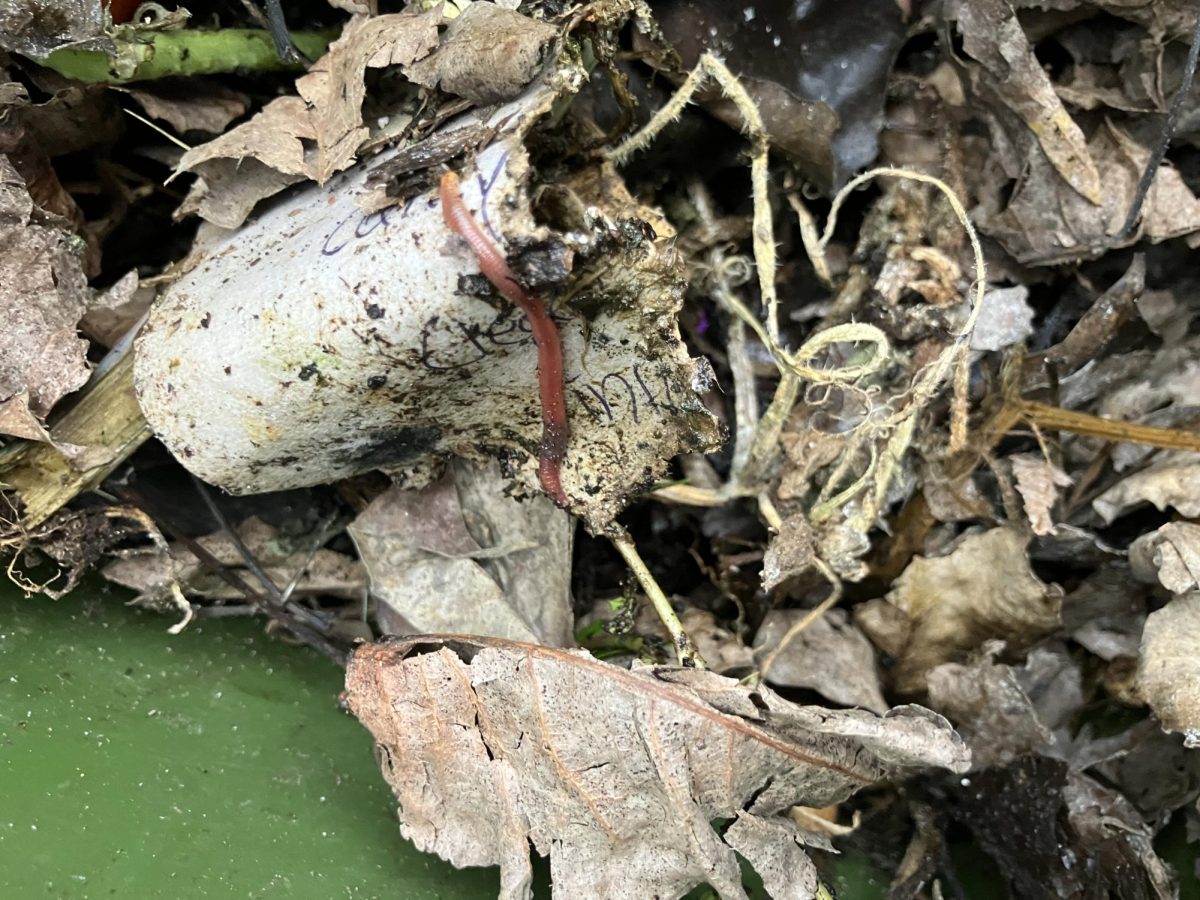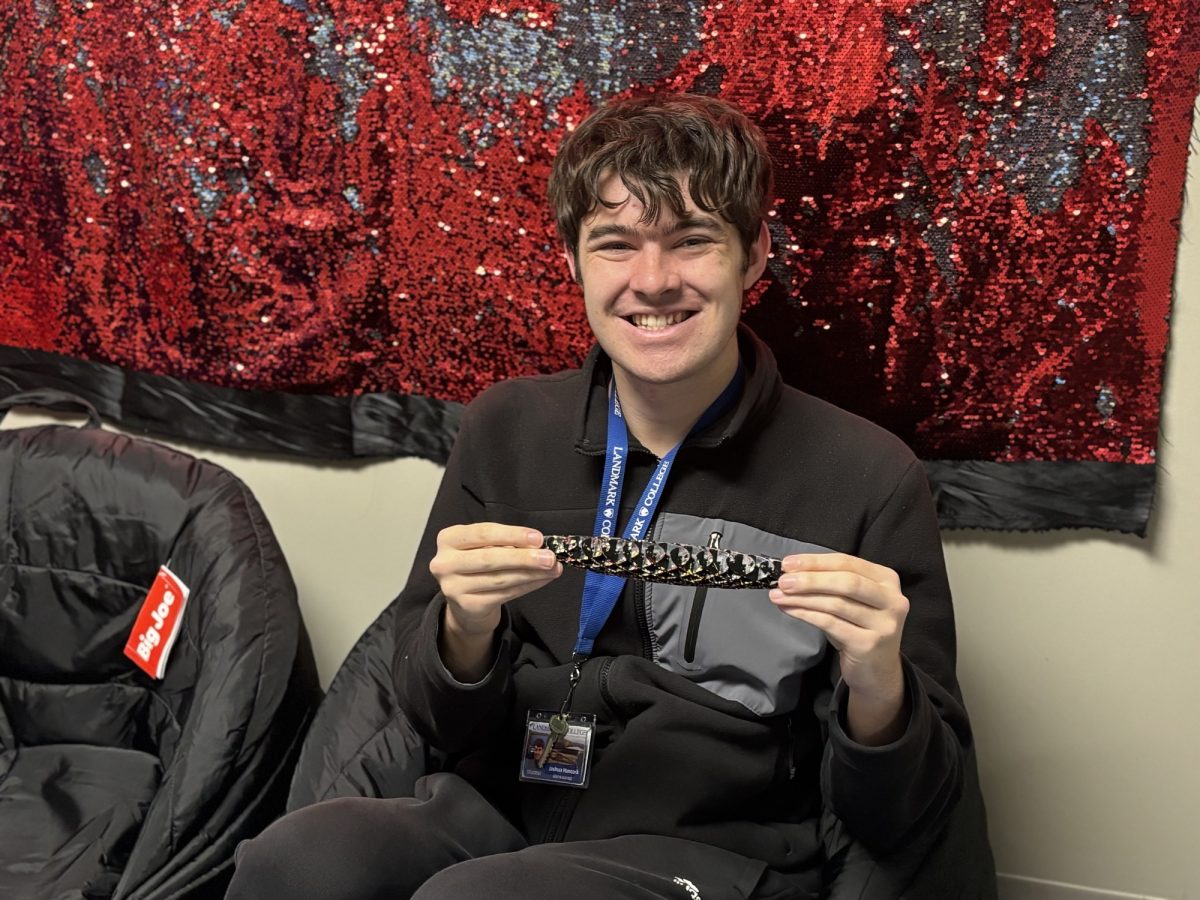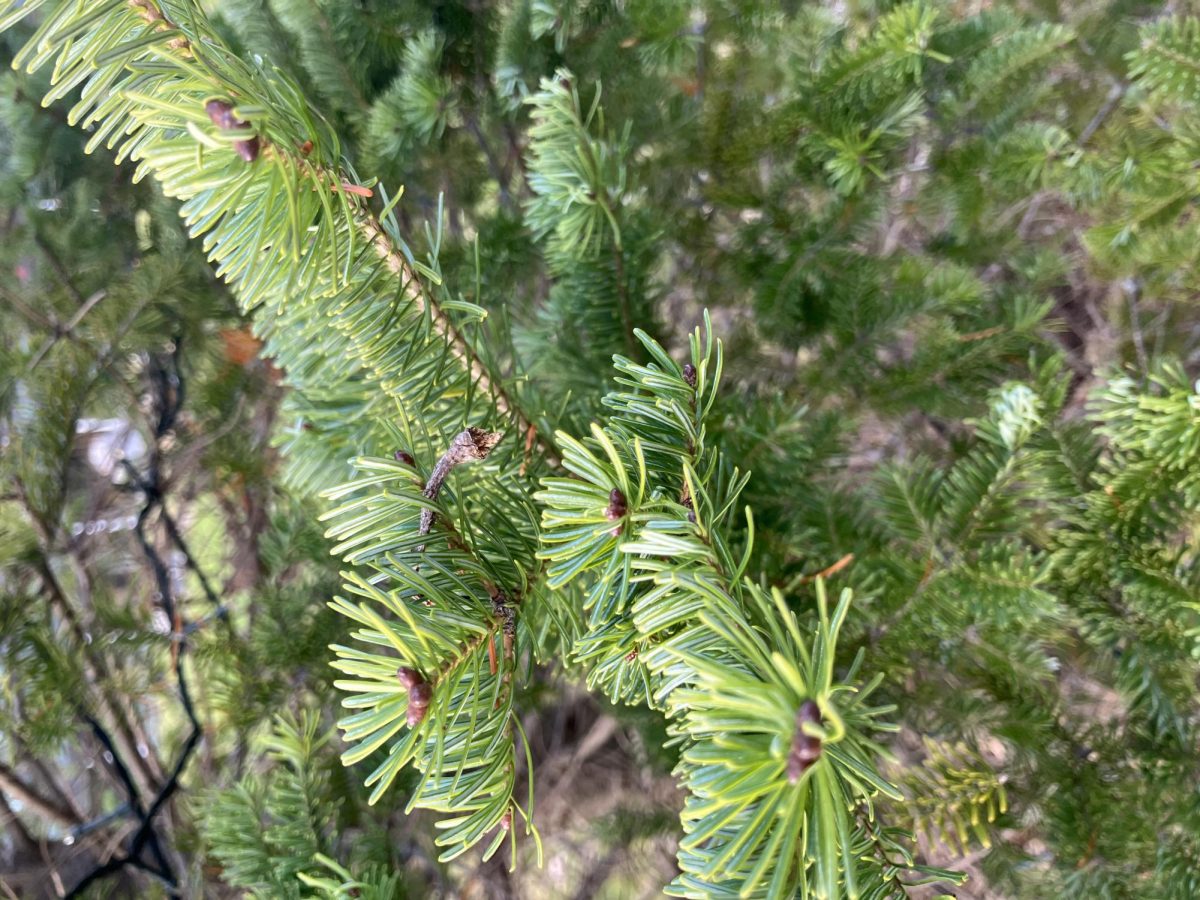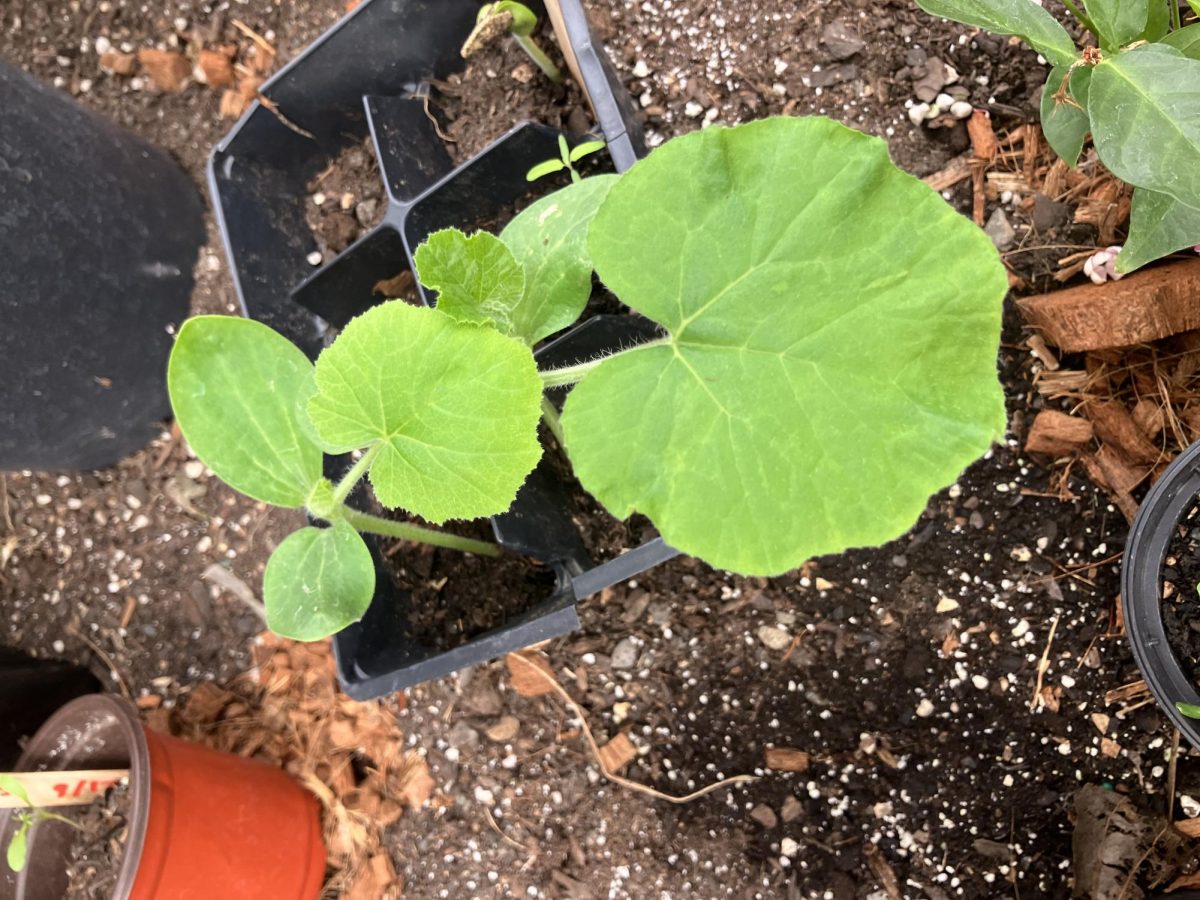As part of the Garden Club’s constant initiative to make our space eco-friendlier, we have introduced some guests to our local compost bin. We are thrilled with our new additions (which arrived last Sunday) and are optimistic that everyone on the campus will welcome them just as happily as we did.
The guests in question? A small colony of earthworms, known as Lumbricus terrestris. Our honored guests are the largest species of earthworm, typically reaching 20 to 25 cm in length when extended. (But please do not extend them; it rather offends them).
Thankfully, our new friends will not be showing up at the Dining Hall: they much prefer delicacies such as dead organic material, shredded cardboard, and the soil itself. This is especially lucky because most worms have enormous appetites; they consume so much food that their feces equal their body weight.
Despite their voracious appetites (or perhaps despite it), their poop is practically liquid gold for gardening. Not unlike animal manure, worm castings provide rich nutrients and healthy bacteria for vegetation. In addition to the nutrients, the castings are also loaded with beneficial bacteria and fungi that support other organisms in the soil, a vital component of organic gardening.
But worms are not just good little gardeners; they are also surprisingly good parents. Firstly, they secrete a sticky substance that they use to attach their babies to the walls of their burrows. From there, the babies suck up nutrients from their parents. Thirdly, worms actively protect their young from predators. Although worms have roughly six to eight babies per day (!!!), they are undeniably doting caregivers.
In a similar vein, worms are social organisms. It is rare to find just one earthworm; if you look closely enough, you will probably uncover an entire colony. Due to certain ideal conditions, large numbers of worms will often gravitate towards one group of soil. Our goal is to convince the worms to not only stay in the soil, but also set up a colony in the compost bin. If they do, everyone wins. And if they do not? Well, we will just have to take up worm charming.



















